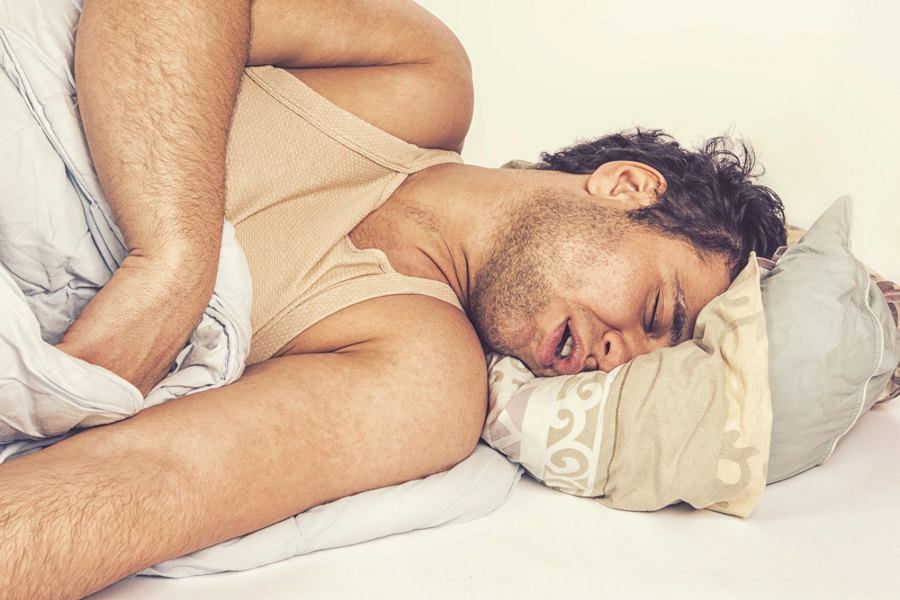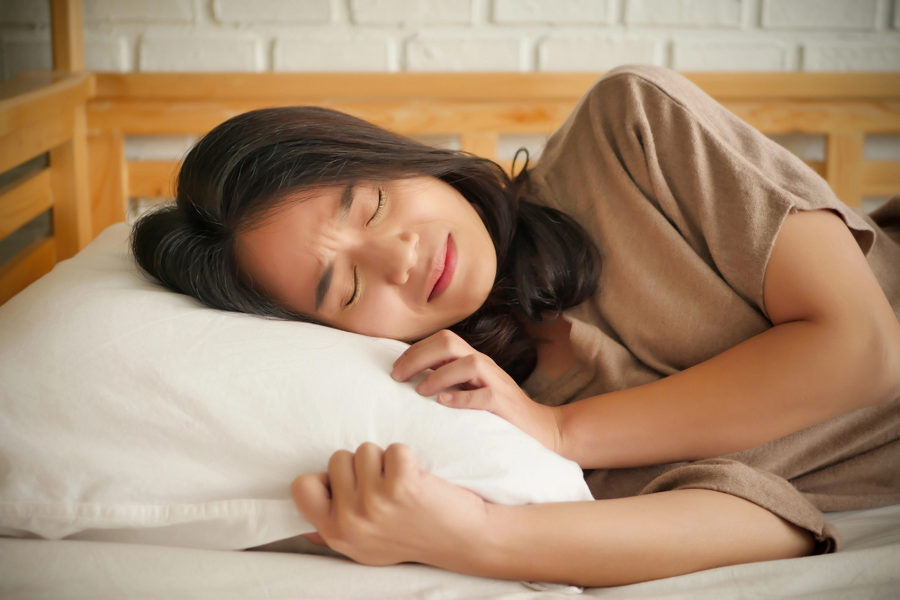Why Do I Wake Up With Dry Eyes? Discover Causes and Relief
Why do you wake up with that gritty, dry feeling in your eyes? Could your sleep environment be contributing to your morning eye discomfort?
It’s a misconception that only screen time during the day causes dry eyes. Even nighttime habits play a big role.
I’m Martin Robinson, the Owner and Principal Optometrist at Martin’s Eyecare in Glenorchy. I see many patients who struggle with morning dry eyes, and I know how frustrating it can be to open your eyes with that dry, scratchy feeling. Having practiced optometry in Tasmania for many years, I’m dedicated to helping our community find real, lasting relief for dry eye symptoms.
Read on to uncover why you wake up with dry eyes, and the connection with your sleep habits.
KEY TAKEAWAYS:
-
Adjusting sleep routines and environment factors can help reduce morning dry eye symptoms and improve overall eye comfort.
-
Medical conditions, lifestyle factors, and specific treatments, like warm compresses and humidifiers, can play a big role in dry eye management.
-
A professional eye assessment is essential for a personalized treatment plan and long-term relief from dry eye discomfort.

Causes of Waking Up with Dry Eyes
The tear film, a delicate yet essential structure, plays a critical role in maintaining eye moisture and preventing dry eye symptoms. It consists of three distinct layers: the outermost oil layer, the middle water layer, and the inner mucus layer.
The oil layer, produced by the Meibomian glands, reduces evaporation, acting like a lid on a pot of water to keep tears intact. The aqueous layer provides hydration, washing away debris and delivering nutrients. Meanwhile, the mucus layer helps the tears spread evenly across the eye, creating a smooth surface for optimal clarity
Waking up with dry eyes is a common issue when the interplay between these three tear layers is interrupted. This can be caused by several medical conditions, lifestyle habits, environmental issues or medical factors. Here is a list of potential causes.
-
Nocturnal Lagophthalmos:
In this condition, the eyelids do not fully close during sleep, leaving the eyes exposed to air. This exposure leads to tear evaporation and results in dryness, irritation, and discomfort after you get up. -
Floppy Eyelid Syndrome:
Weak eyelid cartilage can cause the eyelids to pull open during sleep, especially if they press against a pillow. This increases the likelihood of drying air reaching the eyes. -
Meibomian Gland Dysfunction:
This common health issue disrupts the production of the tear film’s oily layer, causing tears to evaporate more quickly. Without sufficient oil, the eyes are left vulnerable to irritation and dryness. -
Demodex Mites:
Microscopic mites, which are most active at nighttime, can irritate the eyes and lead to inflammation. Their presence can also worsen conditions like blepharitis, further contributing to dry eye symptoms. -
Age-Related Decline in Tear Production:
Tear production naturally decreases with age, particularly in individuals over 65. This reduction in moisture leaves the eyes more prone to dryness. -
Environmental Factors:
Sleeping in a room with a fan, air conditioning, or a heater can reduce the air’s humidity, drying out the tear film. Prolonged exposure to such conditions often worsens morning dryness. -
Excessive Alcohol Consumption: Alcohol can dehydrate the body while you sleep, reducing tear production and exacerbating dryness.
-
Poor Hydration: Insufficient water intake can leave your body, including your eyes, less hydrated.
-
Digital Device Use Before Bed: Staring at screens reduces blinking rates, preventing proper moisture distribution across the eyes.
-
Medications: Certain medications, such as antihistamines, antidepressants, and blood pressure drugs, can reduce tear production and worsen dry eye symptoms.
-
Health Conditions: Systemic conditions like diabetes and autoimmune disorders, including Sjögren’s syndrome, interfere with tear production. These conditions often leave the eyes dry and more susceptible to irritation.
-
Hormonal Changes: Fluctuations in hormones, particularly during menopause, pregnancy, or while using hormone replacement therapy, can impact tear production and tear film stability. These changes often lead to an increase in dry eye symptoms, making hormonal shifts a significant factor in eye discomfort for many individuals.
When you recognize these contributing factors, you can identify potential triggers for morning dry eyes and take steps to address them effectively

Sleep Preparation Tips for Managing Dry Eyes
How you prepare for sleep can have a big impact on the comfort of your eyes in the morning. By making a few simple adjustments to your bedtime routine and sleeping environment, you can help protect your eyes and reduce the effects of overnight dryness.
- Use preservative-free artificial tears or eye gel before bed. These products add a protective layer to your eyes, reducing evaporation while you sleep. For those with severe dryness, eye gels provide long-lasting hydration throughout the night.
- Cleanse your eyelids to remove bacteria and debris. Gently wash your eyelids with a warm cloth or a specialised eyelid cleanser to reduce inflammation and prevent Meibomian gland blockages. A warm compress before bed can also help stimulate oil production, improving tear film stability.
- Pay attention to your sleeping position. Avoid sleeping on your stomach or pressing your face into a pillow, as this can disrupt the natural tear film and irritate the eyes. Opt for a position that keeps your face elevated and minimises direct contact with surfaces.
- Consider moisture chamber goggles for better eye hydration. These goggles create a sealed environment that locks in humidity, preventing tears from evaporating. They are particularly beneficial for those with nocturnal lagophthalmos or chronic dryness.
- Use eyelid tape if you struggle to fully close your eyes during sleep. This simple solution gently holds your eyelids closed, shielding your eyes from exposure to dry air and reducing the risk of irritation. It’s an easy-to-use option that works well for many patients.
- Keep your bedroom environment eye-friendly. Avoid using fans or air conditioners that blow air directly on your face, as these can worsen dryness. If needed, consider a humidifier to maintain a comfortable level of moisture in the air.
- Reduce screen time in the evening. Extended use of digital devices before bed reduces your blink rate, causing less moisture to spread across your eyes. Simple measures like following the 20-20-20 rule—looking away every 20 minutes at something 20 feet away for 20 seconds—can help maintain tear stability before sleep.
- Add omega-3 supplements to your diet. These dietary fats are known for their anti-inflammatory properties, making them a valuable addition to your nightly routine.
- Stay hydrated. Drinking sufficient water throughout the day supports overall hydration, including tear production.
By incorporating these practical tips into your nightly routine, you can create a sleep environment that supports better eye health. These changes are simple to implement and can significantly reduce morning dryness, leaving your eyes feeling refreshed and comfortable.
Sleep Apnea, CPAP Use, and Dry Eye Symptoms
How does sleep apnea treatment impact your eyes? While continuous positive airway pressure (CPAP) machines are a game changer when it comes to managing sleep apnea, they can inadvertently cause dry eye symptoms due to air leakage from the mask. The continuous stream of air may escape and flow towards the eyes, disrupting the tear film and causing irritation or dryness by morning.
Making sure you have a proper CPAP mask fit is crucial to minimising these effects. For added protection, moisture goggles or humidifier attachments for the CPAP machine can help maintain eye hydration while you sleep.
Regular eye check-ups are also important for CPAP users experiencing dry eye symptoms. An optometrist can monitor your condition, recommend adjustments, and offer targeted treatments to keep your eyes comfortable and healthy alongside your sleep therapy.
To learn more about how CPAP devices can exacerbate dry eyes, watch the following video.
Professional Treatment Options for Persistent Morning Dry Eyes
What if home remedies and lifestyle changes aren’t enough?
Persistent dry eyes in the morning may require professional intervention to address the underlying causes. Martin’s Eyecare has advanced diagnostic tools, such as the Oculus Keratograph® 5M, that can analyse tear quality and Meibomian gland function in detail. A thorough eye exam helps pinpoint issues like gland blockages or tear film instability, enabling your optometrist to create a personalised treatment plan.
Medical treatments can provide significant relief for some patients with chronic dryness. Punctal plugs are one effective option, helping to retain natural tears by blocking the tear drainage system.
For more severe cases of Meibomian gland dysfunction, in-office procedures like manual gland expression can restore proper oil flow, improving the tear film’s stability.
At our optometry practice we can also offer Intense Pulsed Light (IPL) therapy, an advanced treatment that targets inflammation and reactivates Meibomian gland function, providing long-lasting relief from dry eye symptoms.
If morning dryness affects your quality of life, professional care can open the door to effective solutions. With tailored treatments, you can manage your symptoms and enjoy healthier, more comfortable eyes.
CONCLUSION
Dry eyes in the morning can be frustrating and uncomfortable, often making it harder to start your day on the right note. This problem can come from a variety of causes, including medical issues, environmental factors, or even small habits you might not think twice about.
The good news is that small, practical changes to your nightly routine can make a big difference. Simple things like using a humidifier, applying eye drops before bed, or making your bedroom more eye-friendly can help you wake up with less irritation.
For those with sleep apnea, your CPAP equipment might be part of the issue. A better-fitting mask or adding a humidifier to the machine can help protect your eyes from dryness overnight. Even these basic tweaks can go a long way in making mornings more comfortable.
You don’t have to live with dry eyes. If the problem persists, it’s worth taking the next step to find out what’s really causing it. Schedule an appointment, and we’ll work together to uncover the root cause and find the best solution for you.
Relief is possible, and we’re here to help you wake up with eyes that feel refreshed and ready for the day ahead!
